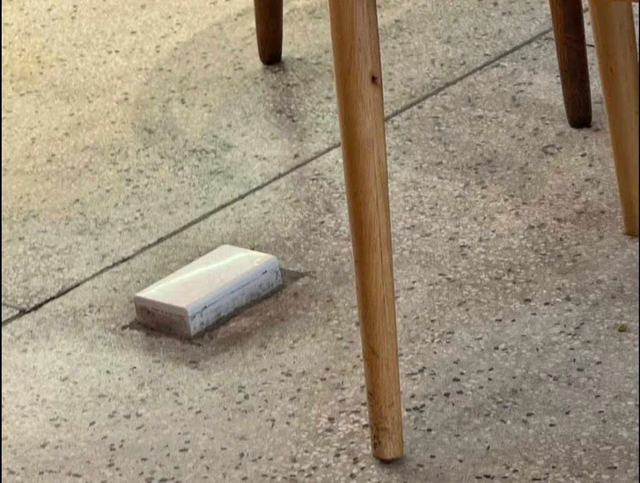
The Coffee House was acquired by Golden Gate for around VND270 billion (US$10.4 million), significantly lower than its previous valuation of over VND1.1 trillion ($42.4 million). The chain is currently undergoing restructuring after a period of poor business performance, aiming to improve its operations and provide a better experience for customers, especially the younger generation. Photo: TCH
In reality, customers spending hours at coffee shops is not a new phenomenon. This topic has been widely debated on social media multiple times.
Le Thi Linh Chi, 25, a freelancer in Ho Chi Minh City, said she often chooses to work at coffee shops with open, aesthetically pleasing spaces such as The Coffee House.
According to Chi, working in a café helps her be more creative than working in her small, stuffy, 15-square-meter windowless room.
What Chi particularly appreciates is the flexible layout in many coffee shops today: quiet areas for working, private corners for conversations, reading zones, and even sofas for relaxing.
“The staff here also frequently refill water and tea for free, which makes me feel cared for,” Chi shared.
Minh Anh, 20, a student at Ho Chi Minh City Open University, believes that coffee shops are not just places to study but also serve as a kind of spiritual space for many young people.
“There are nights when deadlines make me feel tired and lonely. But when I go to a café and see others working hard, I feel more motivated,” she said, affirming her love for working at cafés.
To avoid feeling like she’s freeloading, Minh Anh said she always buys pastries if she stays long—both to recharge after four to five hours of studying and to support the café.
From a different perspective, Ngoc Diep, 22, a Ho Chi Minh City resident, expressed understanding of the difficulties cafés face when power outlets are blocked. She noted that some customers have taken excessive advantage of the amenities provided.
“I’ve seen people stay the entire day, charging their laptops from morning to night while ordering only one drink. That makes it hard for the café to turn over tables for other customers,” she said.
However, Diep also disagreed with the way the outlet issue was handled.
“Not everyone who stays long is inconsiderate. I and many of my friends usually order two to three drinks if we sit for a long time, plus pastries. We come for a comfortable space, so if outlets are covered like that, I’d definitely reconsider coming,” she added.
The Coffee House’s explanation
The Coffee House noted that some of its stores have recently implemented minor layout adjustments to refresh the space and deliver a more complete and enjoyable customer experience.
During this process, some inconveniences may have occurred. The company expressed regret and hopes customers understand the effort behind each small change.
Power outlets will now be arranged according to specific areas so that customers can easily choose spaces that fit their needs. Those who require outlets for studying or working will have access to quieter, dedicated zones.
Meanwhile, customers coming to relax, socialize, or enjoy services will have separate areas, ensuring comfort and a positive experience for all.

A screenshot shows The Coffee House covering power outlets in its stores.
To facilitate the adjustment process, The Coffee House will temporarily limit the use of power outlets within a two-meter radius of the counter area for safety reasons.
All changes have been carefully planned, will only last for a short time, and will not affect other areas of the store. Other floors and spaces will continue to operate normally and are always ready to welcome customers as usual, the chain stated.
Not all The Coffee House locations have had their outlets covered.
The chain currently operates 92 stores, mainly in Ho Chi Minh City and Hanoi, as well as in provinces like Hung Yen, Hai Phong, Tay Ninh, and Binh Duong.
Opportunities to increase revenue
At quiet coffee shops in Ho Chi Minh City, the number of customers typically increases from noon and continues into late at night. Most venues are equipped with adequate lighting, power outlets, and tables.
Some 24/7 cafés have even adopted the approach of charging reasonable additional fees and offering free services such as water and blankets, supporting customers who want to study, work, or stay overnight.
F&B industry experts noted that cafés have evolved beyond places to consume beverages—they are becoming "mobile offices" thanks to their convenience, flexibility, and affordable costs.
This is also a growing consumer trend, especially as more young people pursue freelance work and avoid traditional office settings.
This model also boosts the beverage sector growth, opening new opportunities in spatial design and operations.
Experts suggest cafés could proactively boost business efficiency by promoting add-on sales during extended visits.
For instance, every two hours, staff could offer customers additional drinks or snacks at a 10–20-percent discount.


Max: 1500 characters
There are no comments yet. Be the first to comment.